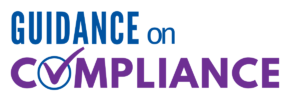As providers of care and services in long-term care, we are all familiar with the Quality Assurance and Performance Improvement (QAPI) process for skilled nursing facilities. Initially, this quality improvement process required having the senior members of the facility management team meet at least quarterly to discuss resident incidents and accidents, any infectious disease management needed for either the residents or the staff, review of pharmacy issues, etc. However, beginning November 28, 2019, this process will take on a whole new look as a result of the new survey process.
With surveys on or after November 28, 2019, a specific process will be required to achieve compliance in the area of quality improvement. Title 42 of the Code of Federal Regulations Section 483.75 states, “Each LTC facility, including a facility that is part of a multiunit chain, must develop, implement, and maintain an effective, comprehensive, data-driven QAPI program that focuses on indicators of the outcomes of care and quality of life.”
According to the Centers for Medicare & Medicaid Services (CMS), “A QAPI plan is the written plan containing the process that will guide the nursing home’s efforts in assuring care and services are maintained at acceptable levels of performance and continually improved.”
The following are some high-points from the new regulation:
- The facility QAPI plan should have been presented to the State Survey agency no later than November 28, 2018.
- The plan MUST include quantifiable reports demonstrating identification, reporting, investigation, analysis and actions to prevent future incidents of adverse events.
- Prepare to present the plan to the survey team during survey and corroboration of ongoing use of the plan when requested by the agency.
- Formulate and complete a full training program for the entire staff on the makeup of the full range of the program and its effectiveness related to mitigating risk events.
- Address all services, including clinical care, quality of life and resident choice
- The QAPI plan should be closely tied to the facility assessment and identify any special type of residents served in the facility or community.
- Include identification of a system of prioritization of the significant events.
It is up to the facility whether or not to participate in a Patient Safety Organization (PSO) which could assist in the collection and analysis of data related to quality issues and could be utilized to effectively manage outcomes through a Patient Safety Evaluation System (PSES).
If a facility refuses to provide evidence of compliance, the possibility exists that licensure under the Medicare/Medicaid system could be revoked citing failure to meet the articles of participation for skilled nursing facilities.
As a leader in skilled nursing operations, the QAPI program should be a living and continuously improving process to provide ongoing improved care for the residents and a vehicle to assess risk, if an event occurs.
Look for further articles related to our F-Tag series and updates on Phase III implementation of the regulations.
| Update:In a press release identified through McKnight’s Long-Term Care News on July 16, 2019, CMS may be delaying implementation of several segments of the Phase III implementation previously scheduled to be rolled out in November 2019. According to the article, Quality Assurance Process Improvement plan and Compliance and Ethics related requirements may be delayed until November 2020.Comments will be collected by CMS until September 16, 2019 prior to a final decision being implemented. You can access the McKnight’s article here.Also, additional information on the proposed and final rules can be accessed here by viewing the CMS blog. Opportunities to post comments, up to September 16, 2019, can be viewed here. |


